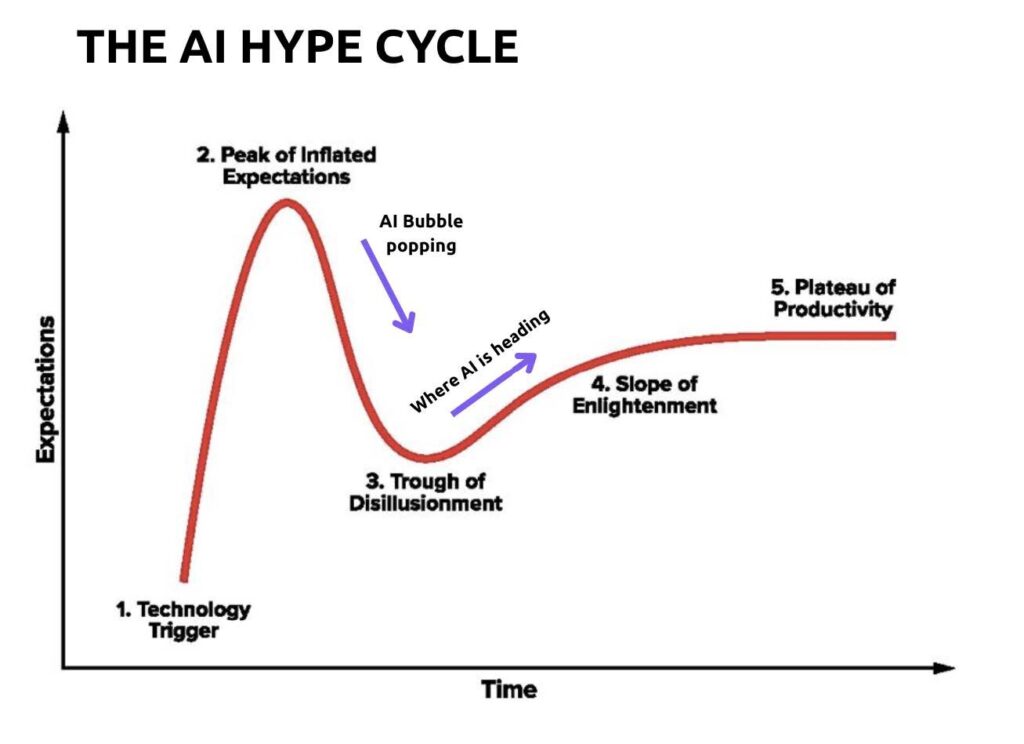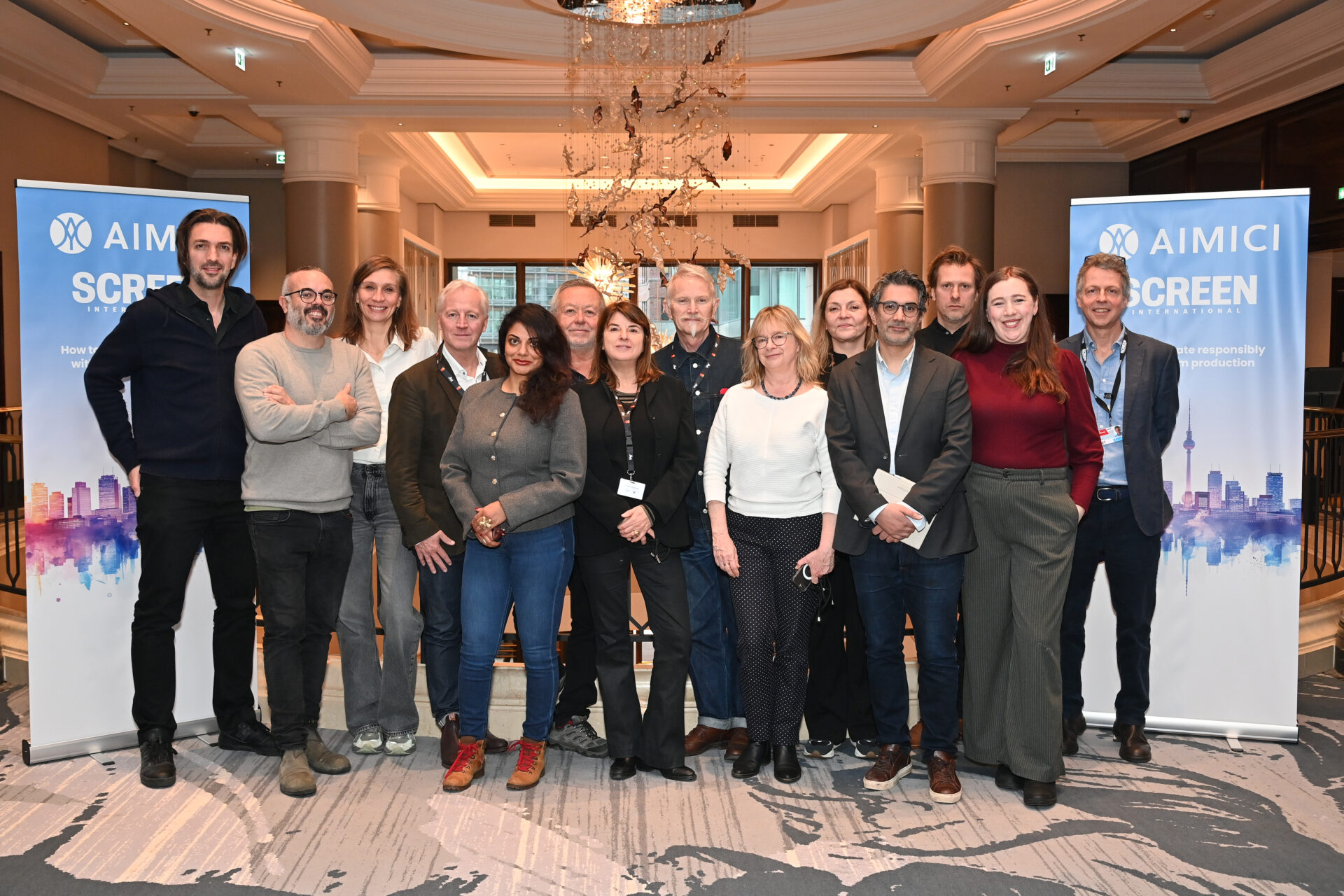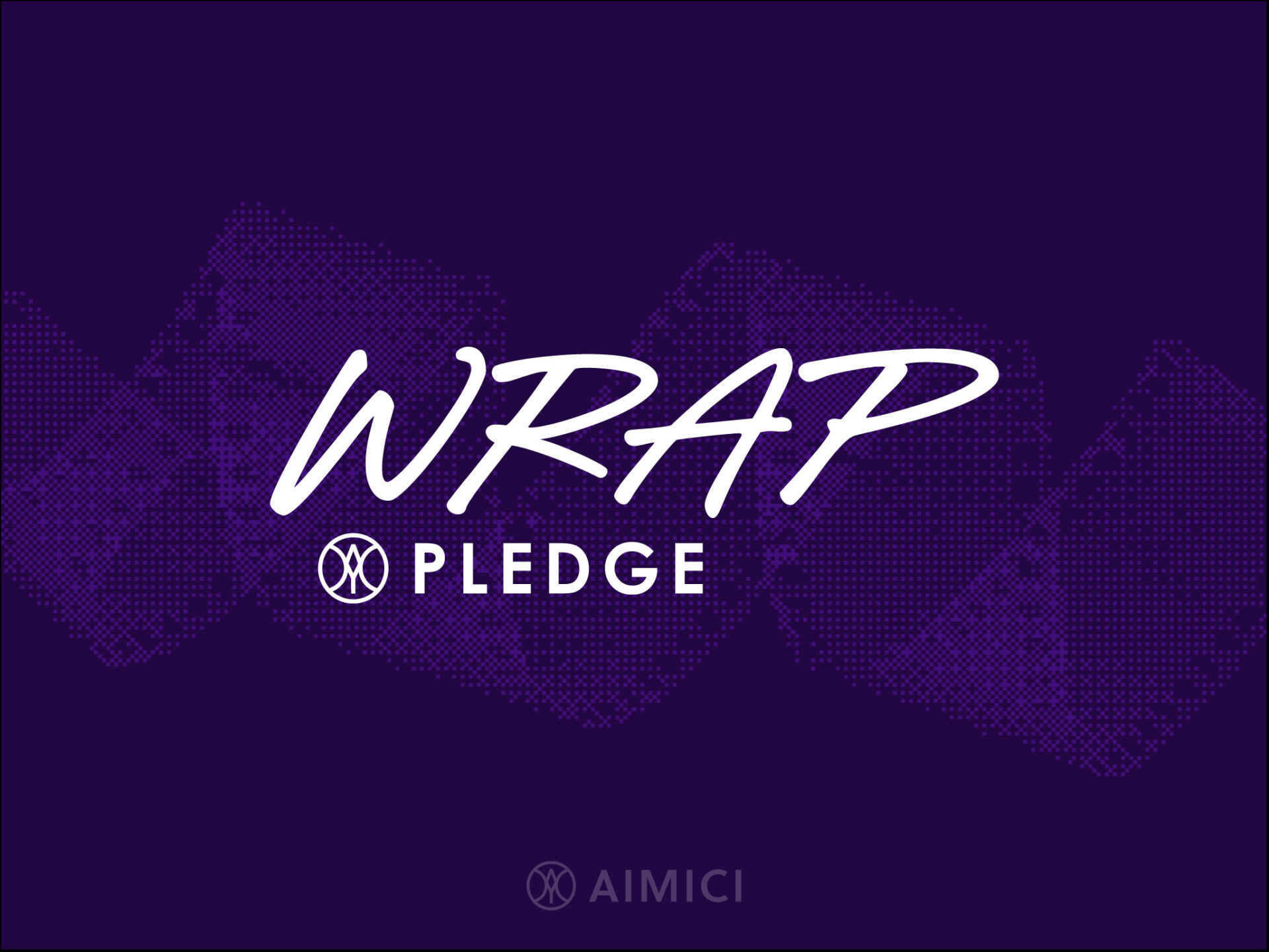Listen to this article
For the past 2 years, artificial intelligence has dominated conversations across the creative industries. From bold claims of AI replacing whole VFX teams to headlines about “one-prompt filmmaking,” the hype was deafening… and the backlash just as loud.
Now, the hype has cooled off. Some say the AI bubble has burst. For the UK’s film and TV sector, this might actually be an opportunity.
The Problem with Hype in Production
The UK is a global content powerhouse, yet much of the AI conversation here mirrored Hollywood’s promises that AI would eliminate the need for animators, storyboard artists, and postproduction houses altogether.
Reality proved different. UK productions operate within complex workflows, tight budgets, and heavily unionised labour markets (Equity, BECTU). Creative integrity and compliance with Ofcom regulations can’t simply be automated.
This mismatch left some companies dabbling in AI pilots that replaced key personnel with an actual detrimental effect on efficiency and compliance, whilst others wrote off the technology completely. Both missed the middle ground, in that, AI is neither saviour nor something easily dismissed.
The Reality: AI as an Accelerator, Not a Replacement
Smart people with good tools beat smart people without them.
A senior VFX artist in Soho won’t be replaced by text-to-3D. But with AI as a tool, junior colleagues can pre-visualise complex shots quickly, while seniors refine work to the level of Pinewood or Framestore quality. Similarly, a director on a BBC drama could use AI to rough out scene variations before passing them to art departments, speeding iteration without sacrificing vision.
The opportunity is real. But to capture it, the UK must double down on upskilling (teaching crews how to use AI tools effectively) and governance (clear rules for ethical, legal, and union-compliant deployment).
Case Studies with Global Lessons
Netflix’s The Eternaut
Warner Bros. Discovery — Captioning at Scale
Independent Filmmakers — DOING MORE WITH LESS
Across the UK’s indie film scene, creators are experimenting with AI to stretch micro-budgets. Shorts have been produced for under £400, using MidJourney for concept art, Runway for VFX, and AI voice tools for scratch dialogue. There are countless examples of this in industry, involving both new and traditional independent filmmakers, such as Aleem Hossain as his recent work on “Do Bangladroids Dream Of Electric Tagore?” More Details HereThe trend is clear: AI can democratise access for emerging talent. But many filmmakers admit to being conflicted. While the tech enabled them to realise ideas that funding alone never would, the results can be inconsistent, outright bad, or ethically murky without oversight.The UK’s creative sector, anchored by institutions built on public trust like the BBC and celebrated globally through BAFTA, must approach AI adoption with strong governance to match its ambition.Why the AI Bubble Popping Is Healthy
The bursting of the AI hype bubble will lead the way to better things. Why?Expectations Normalise
UK producers now see AI less as a gimmick or panacea, and more as a useful tool to be selectively utilised by skilled professionals.
Plateau of Productivity Can Begin
When looking at the well-known hype cycle of new technologies, we can see how they go through an initial surge of inflated expectations, followed by a period of disillusionment, before reaching a stage where real, lasting value emerges. AI in the UK’s creative industries is now on it’s way to the real “plateau of productivity,” shifting from scattered pilots to more integrated, practical workflows.

Upskilling & Governance Take Centre Stage
In the UK, the immediate priority is ensuring teams are equipped to use AI responsibly and that adoption is guided by clear governance – with alignment across guidelines from BECTU, Equity, Ofcom, and even the UK Gov’s new AI framework.
These measures support the industry’s existing adoption efforts while safeguarding transparency and trust. At the same time, global signals such as the recently released AI guidelines from Netflix, show that responsible use is already a live issue across the sector at large.
What’s Next for the UK
The future of AI in UK film and TV isn’t about replacement, it’s about integration. When paired with training and governance, AI can:
- Speed up iteration cycles.
- Stretch budgets without sacrificing quality.
- Make global distribution faster and more accessible.
On the surface of the industry AI iceburg, we see a lot of hype. But below the surface, realistic, responsible adoption is happening – the true start of progress.
UK film and TV can lead globally in demonstrating how AI can strengthen creativity without eroding integrity.
—
At AIMICI, we’re examining how upskilling, governance, and real-world workflows can turn AI from a headline into a practical asset for producers, crews, and studios alike.
If you’re considering how to integrate AI without losing sight of creativity or compliance, get in touch to explore how we can help you adopt AI strategically and sustainably.



